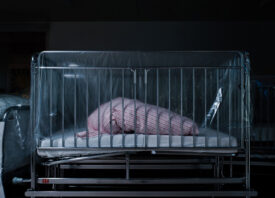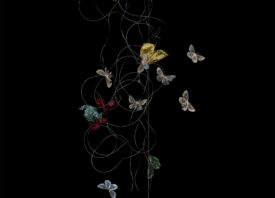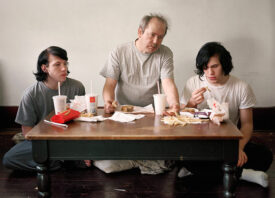Search this site
Coping During a Crisis: Tips from a Coach for Creative Professionals

The experts agree: amid the ongoing coronavirus pandemic, public anxiety is mounting. The World Health Organization recently released a list of mental health considerations to keep in mind during the outbreak. This is a challenging moment for people around the globe, whether we’re coping with the stress spurred by the latest news headlines or the boredom and uncertainty of self-quarantine.
For photographers, the COVID-19 outbreak can also mean canceled exhibitions, fewer clients, and financial uncertainty. If your assignments require traveling and commuting, it means you might face the possibility of radically changing the way you work, at least for the time being.
Those factors don’t help ease the anxiety we’re experiencing right now, but there are ways to cope and navigate through this difficult period. We asked the photographer and professional development coach Danny Ghitis to tell us about some of his best skills for staying balanced and productive during times of uncertainty.
Read on for his tips, and keep in mind that he offers a free 30-minute consultation for more in-depth coaching. For the next few days only, given these unique circumstances, he is also offering ten, hour-long pay-what-you-wish coaching sessions.
During these uncertain times, what do you think is the biggest challenge facing creatives, and what is your number one piece of advice for photographers who are navigating this challenge?
“While these circumstances are new, the fundamental feeling of uncertainty is not. Creatives tend to be well-acquainted with that primal fear, given the nature of their work. This particular fear convinces you that there’s doom lurking around the corner and locks you into survival mode.
“Since we’re more exposed than ever to a constant stream of freak-outs, it’s easy to get stuck in this belief. Especially if you’re creative and envision apocalyptic dramas and spend hours ruminating on the world’s end.
“The key is to remember you have a choice about how to respond. That doesn’t mean you can choose/control everything–a lot of stress comes from resisting and trying to control the inevitable. The choice comes from examining your feelings and thoughts and understanding how they impact your behavior.
“Your beliefs create your experience of reality. Try this: recall an instance where you felt uncertain and navigated your circumstances successfully. What thoughts did you have at the time? How did they make you behave, and what results did you get from that behavior?”

What are some short-term coping strategies you’d recommend to photographers? Let’s say you read a terrifying headline or tweet, get overwhelmed, and have trouble coping. How do you not let the news consume your day?
“The thing about the news is that it’s not there to help you cope or feel good. It’s there to report the news. When people freak out, the news reports it, and then people read the news and freak out more, and so on. Don’t go to the news if you’re looking for relief. It’s like sticking your head in the oven to cool down.
“The challenge is making the effort to remove the temptations all around us. Know that you have a negativity bias and that your brain will jump at any opportunity to ‘protect’ you. Being informed is good, but most of us are well enough informed just by living in society that we don’t need to read new headlines multiple times per day.
“Unless you have a specific and clear reason to be on the news or social media, consider staying away from it, especially now. Spend time outside, call someone on Facetime, reset.”
What advice do you have for photographers who are experiencing a lot of anxiety right now? How do you keep fear and worry at bay?
“First of all, it’s okay. It’s normal. It’s expected. If your income sources have suddenly vanished, you have permission to be upset. Write yourself a permission slip. Don’t pretend that it doesn’t suck if you feel like it does. There’s no such thing as bottling up emotions–they will come out in one way or another, so it’s better to deal with them directly instead of letting them skew your results indirectly.
“Of course, there are the staples: exercise, meditate, eat healthy, sleep well. They sound like cliches, but if you prioritize them, you’ll feel a lot better. If you’re not prioritizing them on your own, get help from other people.
“And try this: write down all the potential ways this moment could be an opportunity. If you’re feeling guilty because you ‘shouldn’t’ see this as an opportunity, well, let that sh*t go. Consciously helping yourself doesn’t mean exploiting other people. It’s quite the opposite.”

How would you advise photographers and other creatives who suddenly have a lot of free, unstructured time on their hands?
“The busier the keep yourself, the more you’ll get done. This is a perfect opportunity to level up skills that you normally don’t have time to focus on. Create an exciting challenge for yourself, or do it with a group of people (online) for accountability.
“Immerse yourself in an indoor or nature-oriented project, practice lighting setups; take a marketing course; plan out a series of promo campaigns; challenge yourself to read five business books; research the hell out of your next project.
“When else will you have such an opportunity to deep dive? Take advantage and remove physical and mental distractions that will sap your energy. Focus on people who want you to see you succeed, and brainstorm about how to help.”
This interview is part of a three-part series with Ghitis on coping, staying creative, and finding community during this time. Stay tuned for more.



